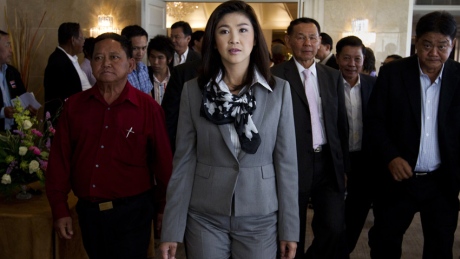KATRINA CROSBY WRITES- Thailand’s political stability may be rocked in the upcoming week. With the trial of former Prime Minister Yingluck Shinawatra awaiting its final verdict, the nation’s Supreme Court decision could lead to to a divisive emergence of the current political forces swirling under the surface of this otherwise beautiful country.
On August 25, the court will decide if Yingluck, while prime minister, is guilty of negligence in the administration of her government’s rice subsidy program that involved massive official purchases of rice at a much higher rate than its market value. The charge against the program was that it served to help only her party’s constituents, and created serious problems for other sectors of society.
When the trial began, in the beginning of the summer, the Ministry of Justice was very quick to freeze some of Yingluck’s bank accounts and bracketing her money for the hefty one billion dollar fine enacted by the military government. Obviously the Bangkok government fully expects the court to render a guilty verdict, and would shed no tears if the maximum possible term of ten years in jail were levied in addition to the astonishing fine.
For Yingluck, political power precedes her. Yingluck’s brother, Thaksin Shinawatra, served as the prime minister from 2001 to 2006, but was ousted from office by military coup in 2006, just as his sister Yingluck in 2014 was remoVed by a political court at the behest of the Thai military. The Shinawatras were overwhelmingly favored in the large country’s northeast and far north regions, especially by the poorer farmers, but simultaneously feared and loathed by much of the Bangkok elite.
During his fall from power, while in self-exile, Thaksin was convicted of abuse of office by a special political court and received a two year jail sentence. To avoid punishment for an offense he believed he did not commit, he exiled himself and wound up in residence in Dubai. When Yingluck threw her hat into the 2011 election, this successful woman business executive ran for parliament as the head of the same populist party founded by her brother and was elected with the largest margin in the spotty history of Thai democracy.
With out-of-office Yingluck still very popular among many supporters in the Pheu Thai Party, probably Thailand’s largest political party, at least 1,000 supporters showed up to rally behind her closing statement at trial on August 1. And so political Thailand remains deeply divided; in domestic terms it has become the Pheu Thai Party against the ruling junta. An estimated 10,000 Thais are predicated to show up on the occasion of the court’s decision at the end of the month. Police and military authorities have already expressed the concern that, with a crowd of this size, with its strong beliefs and emotions about the Yingluck prosecution, public order may come under severe pressure.
Yingluck denies any malfeasance in the rice affair. At her hearing, she said, “I never omitted to perform my duty…I know that I am the victim of a deep political game.” She was Thailand’s first female Prime Minister and, in only her late forties, its youngest in more than 60 years.

